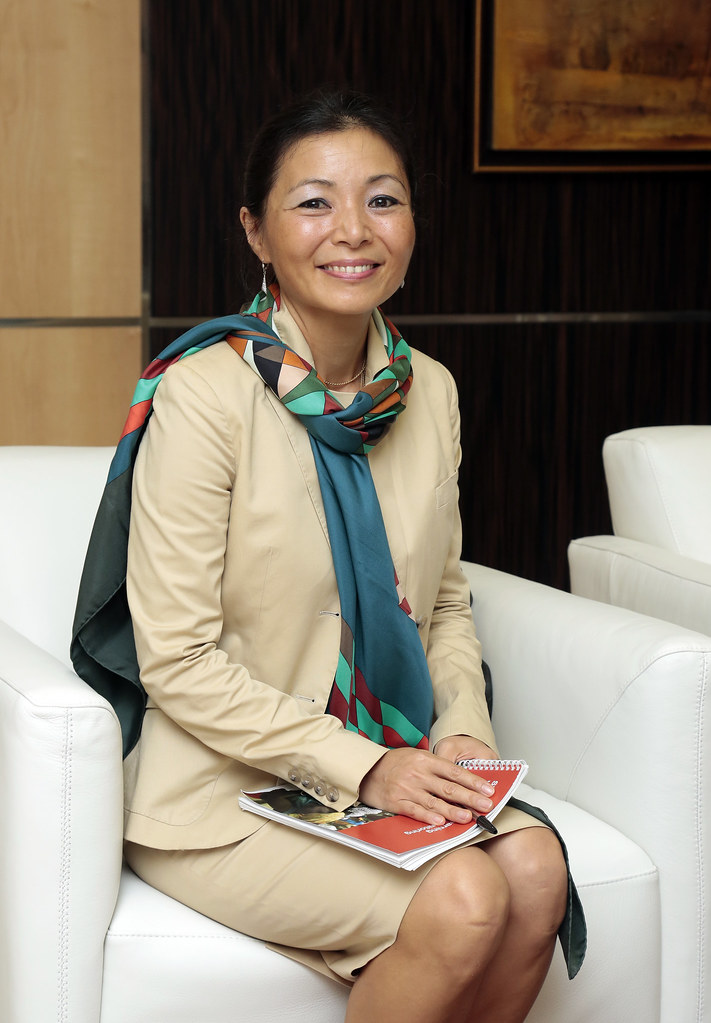SME’s and MSME’S are Lynchpin of African Agriculture – AfDB
A panel of some of Africa’s most promising small and medium-enterprise (SME) agripreneurs gathered online to call for more selective investment, accelerated business acquisitions and increased cooperation to help Africa feed itself and the world. The African Development Bank organized the virtual session, Integrating African Food Systems through the Lens of SME Champions, as a side-event ahead of Africa’s largest agriculture conference – the African Green Revolution Forum (AGRF) – which is being held online for the first time, from 8-11 September. Webinar moderator Atsuko Toda, Bank Director for agricultural finance and rural development, said the panel members, were selected because they are using innovative solutions, tailored their business models, have a proven track record, and shown to have an impact on food systems.

“We see the importance of the roles that you play, the risks you take and the Bank wants to give you more visibility so that policy makers can understand the challenges of what you are facing and help SME Champions to grow,” Toda said. The group of African “SME Champions” – heads of SMEs across the continent’s food system production, processing, logistics, agricultural digitization and cold storage chain solutions sub-sectors, set the scene for webinar attendees, by describing the challenges and opportunities they face in trying to meet Africa’s food systems demands. Some said policy, programs and financing in Africa are geared toward larger organizations and businesses – and that there is still too heavy a focus on agricultural imports to Africa.
Read also:Why Investor Accion Venture Lab Invested In Kenyan Agritech Startup Apollo Agriculture
“Especially if you are an SME it is really challenging to penetrate the market and do something significant,” said Nicholas Alexandre, Global Head of Commercial at LORI, a Kenya-based tech-driven logistics company.
Others shared their experiences in overcoming challenges. For example, Nnaemeka Ikegwuonu, head of Nigeria-based ColdHubs, says his solar power, cold storage facility company helps farmers’ produce stay fresher, longer, reducing the need to rush product to market at less competitive prices. ColdHubs says it invested in the storage infrastructure, so that farmers could benefit from the service at a reasonable price.
“We are taking the risk out of ownership of huge cold rooms from smallholder farmers because we design, operate and maintain these cold rooms. We offer a pay-as-you-use service model,” said Ikegwounu.
Read also:Ghanaian, Nigerian Startups Secure $50k Funding After Village Capital Agriculture Accelerator
Kenya’s SunCulture company, which provides farmers with solar-powered irrigation services, also uses a similar “pay-as-you-grow” service fee program. SunCulture CEO and SME Champion Samir Ibrahim told webinar attendees that there has been sufficient development and investment support to African entrepreneurs to know what works – and that it is time to step up scaling up efforts. “We know that there are proven solutions, the focus now should be to target finance and partnerships to scale those…We need donors and multilaterals to start cutting much bigger checks for much fewer interventions…so we can see the needle moving,” Ibrahim said.
Read also:A New $3.5 Million Funding Program To Support Over 11,000 Startups And SMEs In Morocco
Other champions said building up Africa’s agriculture sector lies in building up its agriculture value chains. SME Champion Patricia Zoundi, who started up Canaan Land, a Cote d’Ivoire-based company that trains women in rural areas in order to develop sustainable and inclusive agriculture said, “We have north-north cooperation. We have south-south cooperation. Now it is time to have SME-to-SME cooperation…On this panel, I see three SMEs with which I can collaborate in marketing…[they offer] something I need in my value chain.”
Toda closed the session by reassuring SME Champions that their insights shared would be transformed into key messages intended to reimagine policy, resulting in the accelerated transformation of Africa’s food systems. “There is so much for us to share, proven solutions for us to amplify, to bring forward to scale and consolidate through partnerships and finance.”
Kelechi Deca

Kelechi Deca has over two decades of media experience, he has traveled to over 77 countries reporting on multilateral development institutions, international business, trade, travels, culture, and diplomacy. He is also a petrol head with in-depth knowledge of automobiles and the auto industry




